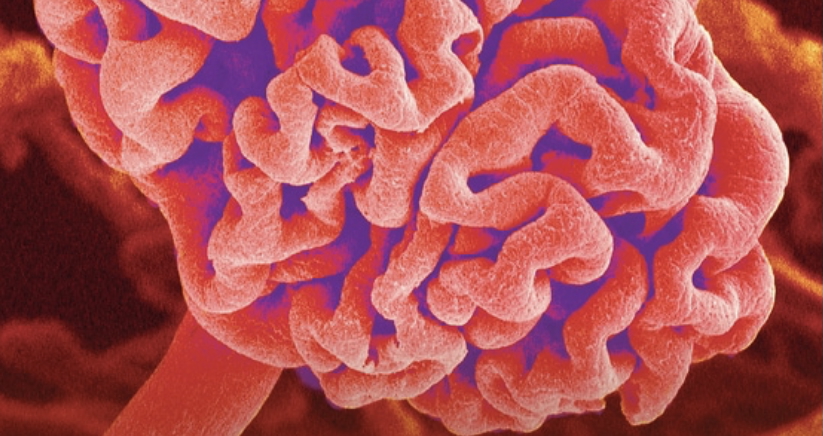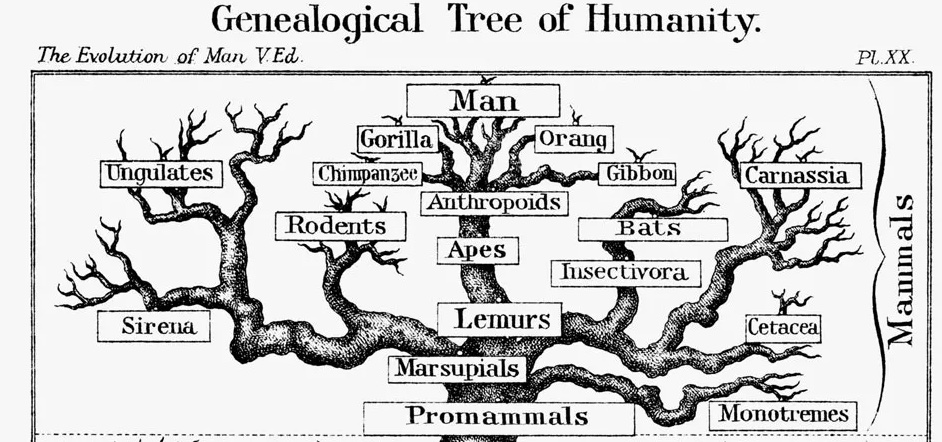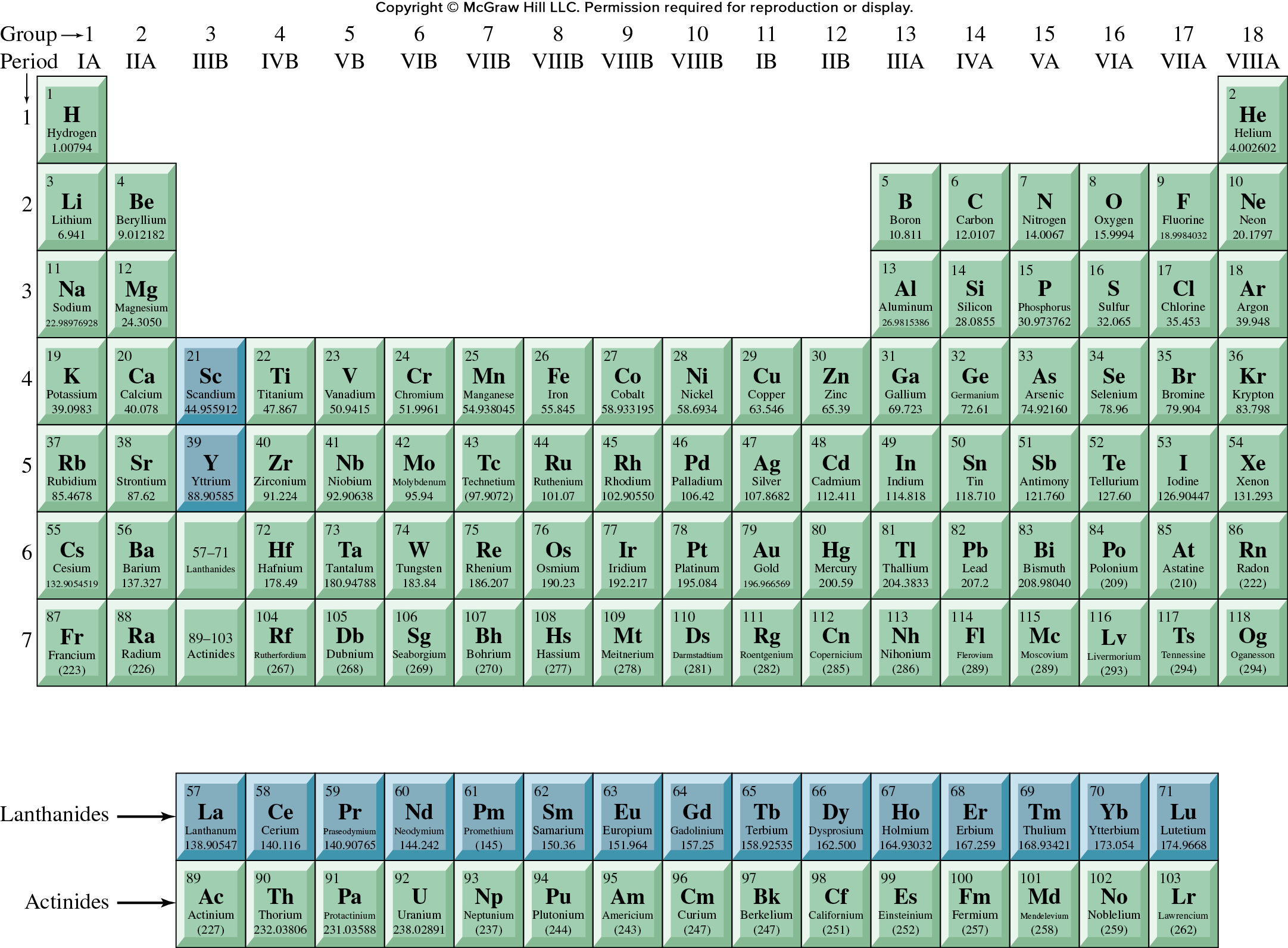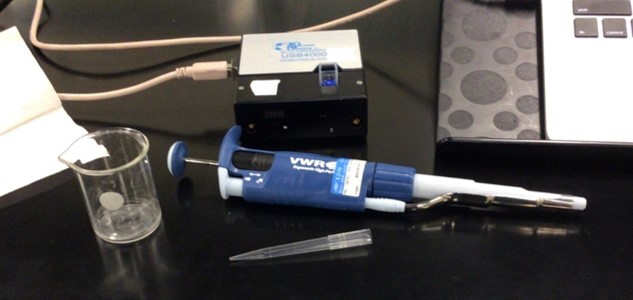- Teacher: Margaret Metz
Lewis & Clark Moodle
Search results: 3449
- Teacher: Tamily Weissman-Unni
- Teacher: Emma Wear
all of biology, illustrated through
evidence-driven examples centered on integrative
organismal biology and organisms' interactions
with the biotic and physical environment. We will
explore the evolution of life, flow of information
within and among individuals, the influence of
structure on function at scales from individuals
to ecosystems, the transformations of energy and
matter in space and time, and the dynamic systems
that characterize Earth and its inhabitants.
Topics will vary according to faculty expertise.
See department website for specific section
details. Can be taken before or after BIO 202.
- Teacher: Emma Wear
- Teacher: Greta Binford
- Teacher: Margaret Metz
- Teacher: Emma Wear
- Teacher: Greta Binford
- Teacher: Emma Wear
- Teacher: Emma Wear
all of biology, illustrated through
evidence-driven examples centered on integrative
organismal biology and organisms' interactions
with the biotic and physical environment. We will
explore the evolution of life, flow of information
within and among individuals, the influence of
structure on function at scales from individuals
to ecosystems, the transformations of energy and
matter in space and time, and the dynamic systems
that characterize Earth and its inhabitants.
Topics will vary according to faculty expertise.
See department website for specific section
details. Can be taken before or after BIO 202.
- Teacher: Emma Wear
- Teacher: Emma Wear
An introduction to core principles that underlie, all of biology, illustrated through, evidence-driven examples centered on integrative, organismal biology and organisms' interactions, with the biotic and physical environment. We will, explore the evolution of life, flow of information, within and among individuals, the influence of, structure on function at scales from individuals, to ecosystems, the transformations of energy and, matter in space and time, and the dynamic systems, that characterize Earth and its inhabitants., Topics will vary according to faculty expertise., See department website for specific section, details. Can be taken before or after BIO 202.
- Teacher: Margaret Metz
- Teacher: Emma Wear
- Teacher: Emma Wear
- Teacher: Emma Wear
all of biology, illustrated through
evidence-driven examples centered on integrative
organismal biology and organisms' interactions
with the biotic and physical environment. We will
explore the evolution of life, flow of information
within and among individuals, the influence of
structure on function at scales from individuals
to ecosystems, the transformations of energy and
matter in space and time, and the dynamic systems
that characterize Earth and its inhabitants.
Topics will vary according to faculty expertise.
See department website for specific section
details. Can be taken before or after BIO 202.
- Teacher: Greta Binford
- Teacher: Margaret Metz
all of biology, illustrated through
evidence-driven examples centered on interactions
among molecules and cells within organisms. We
will explore mechanisms of inheritance and
mutation fundamental to the evolution of life,
flow of information from DNA through proteins to
cellular and organismal function, the relationship
between structure and function at scales from
molecules to individuals, the transformations of
energy and matter through biochemical and
physiological pathways, and the dynamic systems
within and between cells. Topics will vary
according to faculty expertise. See department
website for specific section details. Can be taken
before or after BIO 201.
- Teacher: Tamily Weissman-Unni
- Teacher: Jasmine Hopkins
An introduction to core principles that underlie
all of biology, illustrated through
evidence-driven examples centered on interactions
among molecules and cells within organisms. We
will explore mechanisms of inheritance and
mutation fundamental to the evolution of life,
flow of information from DNA through proteins to
cellular and organismal function, the relationship
between structure and function at scales from
molecules to individuals, the transformations of
energy and matter through biochemical and
physiological pathways, and the dynamic systems
within and between cells. Topics will vary
according to faculty expertise. See department
website for specific section details. Can be taken
before or after BIO 201.
- Teacher: Jasmine Hopkins
all of biology, illustrated through
evidence-driven examples centered on interactions
among molecules and cells within organisms. We
will explore mechanisms of inheritance and
mutation fundamental to the evolution of life,
flow of information from DNA through proteins to
cellular and organismal function, the relationship
between structure and function at scales from
molecules to individuals, the transformations of
energy and matter through biochemical and
physiological pathways, and the dynamic systems
within and between cells. Topics will vary
according to faculty expertise. See department
website for specific section details. Can be taken
before or after BIO 201.
- Teacher: Tamily Weissman-Unni
- Teacher: Margaret Metz
- Teacher: Margaret Metz
- Teacher: Margaret Metz
- Teacher: Sharon Torigoe
- Teacher: Sharon Torigoe
the arthropods. Introduction to their structure,
development, behavior, natural history, and
evolutionary relationships. Lecture, discussion,
laboratory, field trips.
- Teacher: Greta Binford
- Teacher: Greta Binford
- Teacher: Greta Binford
- Teacher: Greta Binford
morphology, physiology, adaptations to life on
land, and ecological interactions with other
organisms. Emphasis on the roles of plants in
ecosystems and human lives. Key characteristics of
major plant lineages in the context of how plants
have become such a diverse and successful group of
organisms. Students conduct independent research
projects on various aspects of plant biology.
Laboratory.
- Teacher: Margaret Metz
- Teacher: Margaret Metz
- Teacher: Margaret Metz
morphology, physiology, adaptations to life on
land, and ecological interactions with other
organisms. Emphasis on the roles of plants in
ecosystems and human lives. Key characteristics of
major plant lineages in the context of how plants
have become such a diverse and successful group of
organisms. Students conduct independent research
projects on various aspects of plant biology.
Laboratory.
- Teacher: Margaret Metz
and biological environment. Ecology of
populations, communities, and ecosystems,
theoretical and empirical approaches. Through
reading original literature and designing their
own studies, students learn to conduct ecological
studies and interpret results. Applications of
ecological principles to conservation issues and
other environmental problems. Lecture and
laboratory; weekend field trip.
- Teacher: Heidi Liere
- Teacher: Heidi Liere
- Teacher: Randall Long
plant, and animal systems. Topics will include
causes of disease emergence, host-pathogen
interactions and co-evolution, interactions
between disease and community diversity, and
anthropogenic effects on disease, among others. We
will use case studies, mathematical theory, and
examples from the primary literature to understand
the causes and consequences of host-pathogen
interactions for populations, communities, and
ecosystems. Intended for biology, biochemistry and
molecular biology, and environmental studies
majors.
- Teacher: Margaret Metz
- Teacher: Margaret Metz
- Teacher: Margaret Metz
Mechanisms underlying metabolism, neural
function, muscle, respiration, cardiovascular
systems, acid-base balance, renal function,
osmoregulation, and response to exercise. Focus
on animal physiology, general physiological
principles and responses to system perturbations.
Emphasis on recent experimental discoveries and
unanswered questions. Intended for biology and
biochemistry majors. Lecture and laboratory.
- Teacher: Duncan Parks

- Teacher: Kellar Autumn

- Teacher: Duncan Parks

evolutionary change and of their results. History
of evolutionary thought, evolution of single-gene
and quantitative genetic traits, speciation, and
molecular evolution. Role of evolutionary ideas in
issues such as species conservation, medicine,
science-religion conflicts. Lecture only.
- Teacher: Duncan Parks

evolutionary change and of their results. History
of evolutionary thought, evolution of single-gene
and quantitative genetic traits, speciation, and
molecular evolution. Role of evolutionary ideas in
issues such as species conservation, medicine,
science-religion conflicts. Lecture only.
- Teacher: Duncan Parks
opportunity to hear research seminars from outside
scientists. Students enrolled in the course will
develop and present a research seminar of their
own. All students taking this course for credit
will be required to attend all seminar
presentations, both by outside speakers and by
their peers, and to participate in the
question-and-answer session after the seminar.
- Teacher: Greta Binford
- Teacher: Heidi Liere
- Teacher: Greta Binford
reconstructing hypotheses of evolutionary history.
Modern phylogenetics relies heavily on models of
molecular evolution, thus the course includes a
foundation of molecular evolutionary theory. We
discuss applications of phylogenies including
analyses of gene family evolution, the emergence
of infectious disease, biogeography, and
coevolution. The lab centers on computational
analyses.
- Teacher: Greta Binford
- Teacher: Greta Binford
- Teacher: Greta Binford
on cellular and molecular approaches. Electrical
signaling in excitable cells, the physiology and
biochemistry of synaptic transmission,
neuropharmacology. The biological bases of
learning, memory, and some neurological disorders.
Sensory systems and neuronal development.
Laboratory focus on student-designed projects.
Lecture and laboratory.
- Teacher: Tamily Weissman-Unni
- Teacher: Heidi Liere

- Teacher: Duncan Parks
- Teacher: Tamily Weissman-Unni
- Teacher: Duncan Parks
Advanced study of current issues in biology, as determined by student and/or faculty interest. May extend existing areas of the curriculum or
explore new subjects. Offering contingent on student interest and faculty availability.
- Teacher: Randall Long
Advanced study of current issues in biology, as
determined by student and/or faculty interest. May
extend existing areas of the curriculum or explore
new subjects. Offering contingent on student
interest and faculty availability. Lab component.
- Teacher: Emma Wear
- Teacher: Tamily Weissman-Unni
Learn the essentials of how to write a resume that gets you noticed.
- Teacher: Mary Beth Snell
- Administration: Dana Harsell
- Administration: Debbie Richman
- Administration: Margaret Salstrom
Counselor Education Comprehensive Examination
- Teacher: Jeffrey Christensen
- Teacher: Carol Doyle
- Teacher: Juleen Norling
- Teacher: Counseling Psychology
- Teacher: Stephanie Solano
biological, cultural, and environmental factors.
Assessment and diagnosis of eating disorders,
appropriate levels of care and a thorough
overview of medical complications.
- Teacher: Bailey Benn
biological, cultural, and environmental factors.
Assessment and diagnosis of eating disorders,
appropriate levels of care and a thorough
overview of medical complications.
- Teacher: Dianne Lamberty Rogers
Evidence-based approaches to treating eating
disorders, including Cognitive Behavioral
Therapy, Dialectical Behavior Therapy, Radically
Open Dialectical Behavior Therapy, Acceptance and
Commitment Therapy, Interpersonal Psychotherapy
and more.
- Teacher: Center for Community Engagement
- Teacher: Suzanne Sanchez
Evidence-based approaches to treating eating
disorders, including Cognitive Behavioral
Therapy, Dialectical Behavior Therapy, Radically
Open Dialectical Behavior Therapy, Acceptance and
Commitment Therapy, Interpersonal Psychotherapy
and more.
- Teacher: Center for Community Engagement
Evidence-based approaches to treating eating, disorders, including Cognitive Behavioral, Therapy, Dialectical Behavior Therapy, Radically, Open Dialectical Behavior Therapy, Acceptance and, Commitment Therapy, Interpersonal Psychotherapy, and more.
- Teacher: Suzanne Sanchez
in global consumer cultures, the gendering and
objectification of bodies, and the
commodification of bodies in looksist societies.
Raising awareness of body politics in the
counseling process is reviewed to promote
individual and relational wellbeing.
- Teacher: Center for Community Engagement
- Teacher: Justin Henderson
scholarship that explores best practices in
working with transgender and gender diverse
clients (TGDCs) experiencing eating disorders
and/or disordered eating (Eds/DE). This course
will also include an introduction to understanding
the intersections of TGDCs, neurodivergence and
EDs/DE. Ultimately, this course will explore the
prevalence of EDs/DE in transgender communities,
address gaps in current models based on cisgender
populations, and provide TGD and neurodivergent
affirming considerations that reduce barriers to
care, and increase and provide ethical, competent,
and gender-affirming care for all gender diverse
clients.
- Teacher: Xander Hayden
- Teacher: Center for Community Engagement
- Teacher: Dianne Lamberty Rogers
children. Family therapy treatment strategies
including the Maudsley method and other
approaches. How to foster healthful eating in
families.
- Teacher: Dianne Lamberty Rogers
children. Family therapy treatment strategies
including the Maudsley method and other
approaches. How to foster healthful eating in
families.
- Teacher: Dianne Lamberty Rogers
DISABILITY STUDIES AND UNIVERSAL DESIGN:
Every educator will encounter students who meet the criteria for disability within public education and grapple with how to successfully foster learning, equity and inclusion in diverse classrooms and schools. This online course, introduces Disability Studies in Education-- a liberation movement discipline distinct from Special Education-- that offers unique insight into these endeavors and proposes Universal Design as a guiding principle.
Disability Studies proposes that "disability" is contextualized within particular social, cultural and political environments according to the acceptable limits of human variability in those environments. This contrasts with the "medical, model," which positions disability as a deficit inherent to an individual, to be rehabilitated, remediated or cured. Contrasting these two different theoretical models helps us to explore the ideology that may underlie ableism, stigma and privilege. Our inquiry will include lived experience and counter culture narratives associated with various disability groups. We will conclude by investigating how we may employ the principle of Universal Design to create embracive learning environments where all students feel valued and empowered, as well as how we may work to dismantle systemic barriers to equity and inclusion within Education.
Disability Studies intersects with other critical disciplines such as Critical Race Studies, Feminist Studies and Gender Studies, all of which foreground lived experience and de-center dominant narratives that cast particular individuals or groups as the "Other." These intersections are also considered in the course, shedding light on the persistent over-representation of minorities in Special Education and exploring whether disablement may function as a mechanism of marginalization for various groups.
Through assigned readings and communal online discussion among professional peers, we will investigate the philosophical, pedagogical, and pragmatic approaches to dis/ability, equity, and, inclusion in education. Teachers, counselors, administrators, psychologists, specialists and academics should all emerge from this course with the historical context, intellectual framework, and practical skills to deepen their professional practice and help promote social justice-both within the sphere of education and in the wider world.
- Teacher: Denise Herrenbruck
In-depth study of a special topic offered by the, Graduate School of Education and Counseling for the first time or on a, temporary basis.
- Teacher: Sue Feldman
- Teacher: Frances Lessman
- Teacher: Sidney Morgan

- Teacher: Barbara Balko
Introduction to the general principles of, chemistry required for students planning a, professional career in chemistry, a related, science, the health professions, or engineering., Stoichiometry, atomic structure, chemical bonding, and geometry, thermochemistry, gases, types of, chemical reactions, statistics. Weekly laboratory, exercises emphasizing qualitative and quantitative, techniques that complement the lecture material., Lecture, discussion, laboratory.
- Teacher: Barbara Balko
- Teacher: Anne Bentley
- Teacher: Julio De Paula
- Teacher: Catlin Schalk
equilibrium, kinetics, thermochemistry,
thermodynamics, electrochemistry, inorganic
chemistry. Weekly laboratory exercises
emphasizing quantitative techniques that
complement the lecture material. Lecture,
discussion, laboratory.
- Teacher: Anne Bentley
- Teacher: Catlin Schalk
- Teacher: Paul Cleary
- Teacher: Jessica Daniel
- Teacher: Rosie Dodean
- Teacher: Alex Duquette
- Teacher: Mason Handford
- Teacher: Louis Kuo
- Teacher: Ian Schacherer
- Teacher: Jessica Daniel
- Teacher: Louis Kuo
and adjacent to the carbonyl group, enolization,
conjugate addition, oxidation, reduction).
Lecture, conference, laboratory. Synthesis,
chemistry of carboxylic acids and derivatives (pKa
of acids, nucleophilic substitution of
derivatives, acyl chlorides, esters, amides,
anhydrides, nitriles). Carbohydrates
(stereochemistry, aldoketoses, aldopentoses,
aldohexoses, ketosugars, derivatives, furanose and
pyranose forms, reducing and nonreducing sugars,
disaccharides and polysaccharides); fats and oils;
aromatic hydrocarbons (benzene, resonance and
molecular orbital approaches, electrophilic and
nucleophilic aromatic substitution); aromatic
nitrogen and oxygen chemistry (diazotization,
synthesis); chemistry of amines, amino acids,
peptides, proteins, DNA; other topics. Lecture,
discussion, laboratory.
- Teacher: Calista Aragon
- Teacher: Jessica Daniel
- Teacher: Louis Kuo
- Teacher: Alister Ng
- Teacher: Hunter Powell
- Teacher: Jessica Daniel
- Teacher: Rosie Dodean
- Teacher: Louis Kuo
- Teacher: Yajiao Yu
- Teacher: Barbara Balko
- Teacher: Barbara Balko
- Teacher: Barbara Balko

physical and analytical chemistry and to develop
research aptitude in chemistry. Investigation of
thermochemistry, equilibria, electrochemistry,
kinetics, spectroscopy, photochemistry, and
material science. Techniques used may include
fluorescence, UV-visible, IR, Raman, NMR, and mass
spectroscopies; diffraction; and computational
chemistry. Lecture, laboratory, oral
presentations.
- Teacher: Barbara Balko
- Teacher: Barbara Balko
- Teacher: Anne Bentley
chemistry with emphasis on bonding, structure,
thermodynamics, kinetics and mechanisms, and
periodic and family relationships. Atomic
structure, theories of bonding, symmetry,
molecular shapes (point groups), crystal
geometries, acid-base theories, survey of familiar
elements, boron hydrides, solid-state materials,
nomenclature, crystal field theory, molecular
orbital theory, isomerism, geometries, magnetic
and optical phenomena, spectra, synthetic methods,
organometallic compounds, cage structures,
clusters, lanthanides, actinides.
- Teacher: Anne Bentley

- Teacher: Nikolaus Loening
- Administrator: Keith Dede